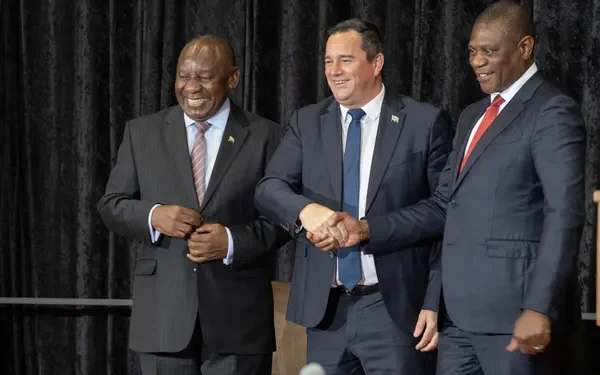South Africa’s government of national unity cleared a crucial hurdle this week as Parliament passed the Appropriation Bill, ensuring continued funding for state operations. While the successful vote demonstrates the ANC-DA coalition can still work together, analysts warn this uneasy alliance may not last long-term.
The budget approval followed heated debates that exposed ongoing tensions between the African National Congress and Democratic Alliance. Though essential services will continue uninterrupted, the fragile compromise highlights fundamental differences between the governing partners.
“This isn’t true unity – it’s a temporary ceasefire,” said political analyst Dr. Lindiwe Mbatha. “Their policy visions and voter bases pull in opposite directions. Maintaining this coalition will require increasingly difficult concessions.”
Civil society groups are calling for broader national discussions about South Africa’s future governance model, arguing the current arrangement may not be sustainable. Meanwhile, smaller political parties see an opening to challenge the ANC-DA dominance, pushing for more diverse representation and fresh policy ideas.
As the country enters this uncertain political phase, experts stress three key priorities: flexible leadership, national unity, and strong public engagement. The next few months will prove critical in determining whether the current coalition can evolve – or if South Africa needs to chart a new political course altogether.
The budget passage may have averted immediate crisis, but the larger question remains: Can this marriage of convenience transform into lasting governance, or is it merely delaying an inevitable political realignment?






















